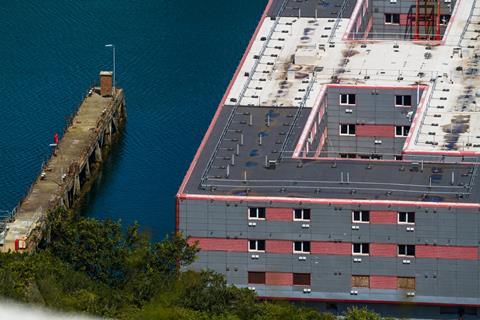The seabed above which a controversial barge housing asylum seekers is moored does not constitute 'land' subject to planning control, a court has ruled in a decision on the distinction between land and sea.
Carralyn Parkes, mayor of Portland Town Council in Dorset, raised the question in a judicial review that she brought in a personal capacity as a local resident. She argued the mooring of the Bibby Stockholm barge at Portland (pictured) constitutes a material change in the use of that land so as to constitute 'development' requiring planning permission. Parkes sought a declaration that Dorset Council had erred in law when it decided that the area where the Bibby Stockholm was moored falls outside planning control.

The case, in the High Court, concerned the question of the geographical extent of planning control in England and Wales under the Town and Country Planning Act 1990 (TCPA).
Planning control under the TCPA applies to 'land' as defined in s.336(1) within the areas of local planning authorities. Mr Justice Holgate said the seabed above which the Bibby Stockholm is moored does not meet that definition. The judge said: ‘If land were to be treated as including the seabed, there would be no logical stopping place before the limits of this country’s territorial sovereignty are reached. That approach would be inconsistent with the legislature’s intention to enact a system of development control in relation to the land, not the sea.
‘It is logical to include the foreshore within the area referred to as “land” because it is not always covered by the sea.’



























16 Readers' comments